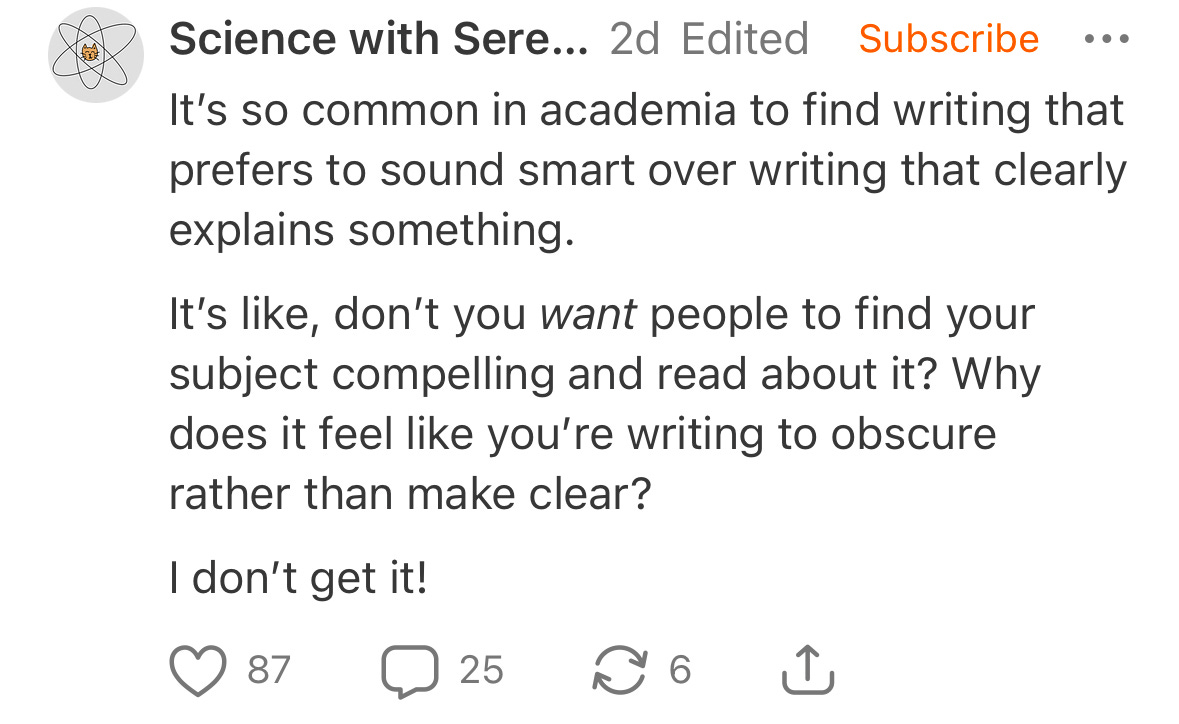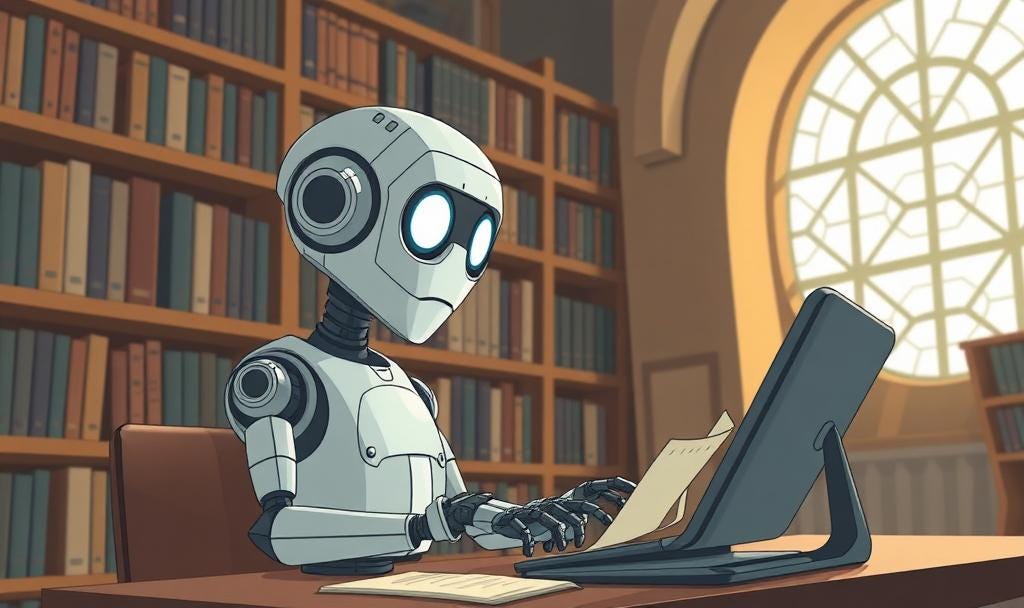What are we doing here?
Thoughts on academia, slop and AI
I saw this interesting tweet just recently:
And then I saw another, here on the stack:
These days I read mostly fiction. I still think a lot about psychology and strategy, but I reckon about 3/4 of my reading is novels. Why? Because it’s intrinsically rewarding and life is short. But also because so much work in my discipline is grindingly dull, and sometimes unreadable. Fiction make me think so much more.
I hear a lot online about AI ‘slop’ - worthless creation of banal prose. But academia, and International Relations in particular, was drowning in slop long before AI came along. There’s tired recycling of ideas - the same inconclusive ‘debates’ that rumble on for decades. There are, conversely, weak claims for novelty - with convoluted hypotheses, conveniently substantiated by the analysis that follows. There are, most irksomely, banal argument dressed up as something profound, often hiding for that purpose behind dense, impenetrable jargon.
This latter is writing not to illuminate, but rather to signal membership, as though of some medieval guild. Particularly irritating are assertions of ‘critical thinking’ — somewhat at odds with the herd-like mentality of the critical thinkers themselves. Anyway, all this is a general problem in social sciences, but it feels especially acute in IR - a magpie discipline that borrows its fashions from elsewhere and that is increasingly divorced from the concerns of practitioners, or even just inhabitants of the real world.
Into this unhappy cul-de-sac of seldom-read scholarship comes generative AI. Initially it specialised in producing bullshit, but now it’s far better. Its references aren’t hallucinated* and its literature reviews reach out beyond the narrow stovepipes of academic disciplines. Its prose is, or can be, elegant, and its arguments are well marshalled. In short, GPT-5 is a better writer, by far, than many authors of pre-AI slop.
So the dilemma - can AI be harnessed by scholars to create novel ideas, and reinvigorate my discipline and others? Or will it just unleash a superabundance of slop, piling nonsense onto the already considerable pile of nonsense?
Well, things can’t get much worse. But they might just get better. I’m (very) tentatively optimistic. In the 25% of reading time when not immersed in fiction, I’m usually bouncing ideas around with GPT-5 and Claude. It’s a great way of very rapidly exposing me to ideas outside my intellectual bubble, and making connections that I’d not thought about before. It’s a powerful filter - panning the slop for nuggets of intellectual gold. It is, in sum, a terrific aid to critical thinking, but only if you aim at it, Socratically. The machine itself is just as happy swilling the slop.
So there’s the challenge for us - are we comfortable in the tepid bath of intellectual decline, endlessly regurgitating stale postmodern ideas like they’re a radical new discovery? Or will we be open to AI, and the human-machine creativity it might unleash?
* Try paying for a better subscription if yours are!




